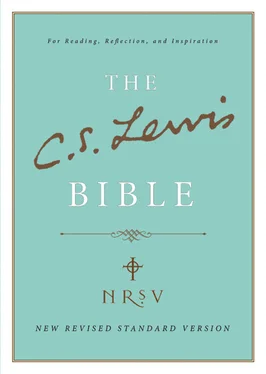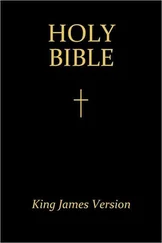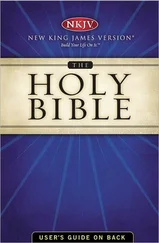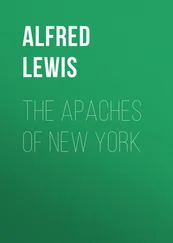20 God was with the boy, and he grew up; he lived in the wilderness, and became an expert with the bow. 21He lived in the wilderness of Paran; and his mother got a wife for him from the land of Egypt.
22 At that time Abimelech, with Phicol the commander of his army, said to Abraham, “God is with you in all that you do; 23now therefore swear to me here by God that you will not deal falsely with me or with my offspring or with my posterity, but as I have dealt loyally with you, you will deal with me and with the land where you have resided as an alien.” 24And Abraham said, “I swear it.”
25 When Abraham complained to Abimelech about a well of water that Abimelech’s servants had seized, 26Abimelech said, “I do not know who has done this; you did not tell me, and I have not heard of it until today.” 27So Abraham took sheep and oxen and gave them to Abimelech, and the two men made a covenant. 28Abraham set apart seven ewe lambs of the flock. 29And Abimelech said to Abraham, “What is the meaning of these seven ewe lambs that you have set apart?” 30He said, “These seven ewe lambs you shall accept from my hand, in order that you may be a witness for me that I dug this well.” 31Therefore that place was called Beer-sheba;[ 62] because there both of them swore an oath. 32When they had made a covenant at Beer-sheba, Abimelech, with Phicol the commander of his army, left and returned to the land of the Philistines. 33Abraham [ 63] planted a tamarisk tree in Beer-sheba, and called there on the name of the LORD, the Everlasting God.[ 64] 34And Abraham resided as an alien many days in the land of the Philistines.
22 After these things God tested Abraham. He said to him, “Abraham!” And he said, “Here I am.” 2He said, “Take your son, your only son Isaac, whom you love, and go to the land of Moriah, and offer him there as a burnt offering on one of the mountains that I shall show you.” 3So Abraham rose early in the morning, saddled his donkey, and took two of his young men with him, and his son Isaac; he cut the wood for the burnt offering, and set out and went to the place in the distance that God had shown him. 4On the third day Abraham looked up and saw the place far away. 5Then Abraham said to his young men, “Stay here with the donkey; the boy and I will go over there; we will worship, and then we will come back to you.” 6Abraham took the wood of the burnt offering and laid it on his son Isaac, and he himself carried the fire and the knife. So the two of them walked on together. 7Isaac said to his father Abraham, “Father!” And he said, “Here I am, my son.” He said, “The fire and the wood are here, but where is the lamb for a burnt offering?” 8Abraham said, “God himself will provide the lamb for a burnt offering, my son.” So the two of them walked on together.
9 When they came to the place that God had shown him, Abraham built an altar there and laid the wood in order. He bound his son Isaac, and laid him on the altar, on top of the wood. 10Then Abraham reached out his hand and took the knife to kill [ 65] his son. 11But the angel of the LORD called to him from heaven, and said, “Abraham, Abraham!” And he said, “Here I am.” 12He said, “Do not lay your hand on the boy or do anything to him; for now I know that you fear God, since you have not withheld your son, your only son, from me.” 13And Abraham looked up and saw a ram, caught in a thicket by its horns. Abraham went and took the ram and offered it up as a burnt offering instead of his son. 14So Abraham called that place “The LORD will provide”;[ 66] as it is said to this day, “On the mount of the LORD it shall be provided.” [ 67]
One right act includes all other righteousness, and that the supreme cancelling of Adam’s fall, the movement “full speed astern” by which we retrace our long journey from Paradise, the untying of the old, hard knot, must be when the creature, with no desire to aid it, stripped naked to the bare willing of obedience, embraces what is contrary to its nature, and does that for which only one motive is possible. Such an act may be described as a “test” of the creature’s return to God: hence our fathers said that troubles were “sent to try us.” A familiar example is Abraham’s “trial” when he was ordered to sacrifice Isaac. With the historicity or the morality of that story I am not now concerned, but with the obvious question, “If God is omniscient He must have known what Abraham would do, without any experiment; why, then, this needless torture?” But as St. Augustine points out, whatever God knew, Abraham at any rate did not know that his obedience could endure such a command until the event taught him: and the obedience which he did not know that he would choose, he cannot be said to have chosen. The reality of Abraham’s obedience was the act itself; and what God knew in knowing that Abraham “would obey” was Abraham’s actual obedience on that mountain top at that moment. To say that God “need not have tried the experiment” is to say that because God knows, the thing known by God need not exist.
—from The Problem of Pain
For reflection Genesis 22:1–19
15 The angel of the LORD called to Abraham a second time from heaven, 16and said, “By myself I have sworn, says the LORD: Because you have done this, and have not withheld your son, your only son, 17I will indeed bless you, and I will make your offspring as numerous as the stars of heaven and as the sand that is on the seashore. And your offspring shall possess the gate of their enemies, 18and by your offspring shall all the nations of the earth gain blessing for themselves, because you have obeyed my voice.” 19So Abraham returned to his young men, and they arose and went together to Beer-sheba; and Abraham lived at Beer-sheba.
20 Now after these things it was told Abraham, “Milcah also has borne children, to your brother Nahor: 21Uz the firstborn, Buz his brother, Kemuel the father of Aram, 22Chesed, Hazo, Pildash, Jidlaph, and Bethuel.” 23Bethuel became the father of Rebekah. These eight Milcah bore to Nahor, Abraham’s brother. 24Moreover, his concubine, whose name was Reumah, bore Tebah, Gaham, Tahash, and Maacah.
23 Sarah lived one hundred twenty-seven years; this was the length of Sarah’s life. 2And Sarah died at Kiriath-arba (that is, Hebron) in the land of Canaan; and Abraham went in to mourn for Sarah and to weep for her. 3Abraham rose up from beside his dead, and said to the Hittites, 4“I am a stranger and an alien residing among you; give me property among you for a burying place, so that I may bury my dead out of my sight.” 5The Hittites answered Abraham, 6“Hear us, my lord; you are a mighty prince among us. Bury your dead in the choicest of our burial places; none of us will withhold from you any burial ground for burying your dead.” 7Abraham rose and bowed to the Hittites, the people of the land. 8He said to them, “If you are willing that I should bury my dead out of my sight, hear me, and entreat for me Ephron son of Zohar, 9so that he may give me the cave of Machpelah, which he owns; it is at the end of his field. For the full price let him give it to me in your presence as a possession for a burying place.” 10Now Ephron was sitting among the Hittites; and Ephron the Hittite answered Abraham in the hearing of the Hittites, of all who went in at the gate of his city, 11“No, my lord, hear me; I give you the field, and I give you the cave that is in it; in the presence of my people I give it to you; bury your dead.” 12Then Abraham bowed down before the people of the land. 13He said to Ephron in the hearing of the people of the land, “If you only will listen to me! I will give the price of the field; accept it from me, so that I may bury my dead there.” 14Ephron answered Abraham, 15“My lord, listen to me; a piece of land worth four hundred shekels of silver—what is that between you and me? Bury your dead.” 16Abraham agreed with Ephron; and Abraham weighed out for Ephron the silver that he had named in the hearing of the Hittites, four hundred shekels of silver, according to the weights current among the merchants.
Читать дальше












